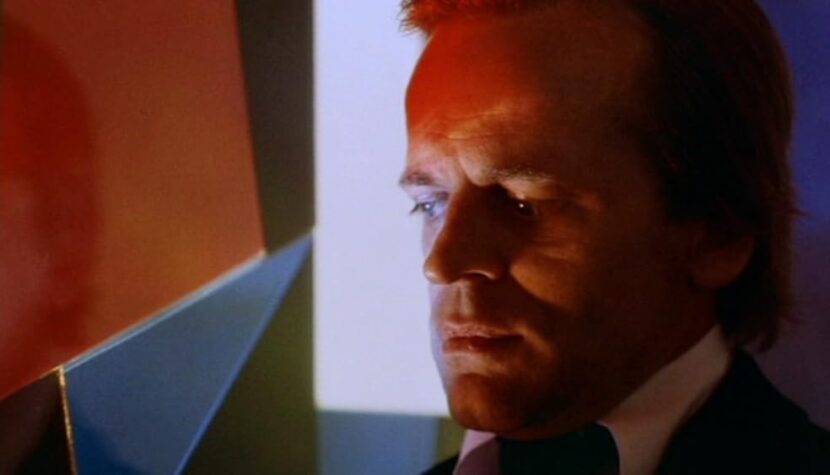LIFESPAN. Unusual science fiction thriller

“Lifespan” is one of the many films in Klaus Kinski‘s extensive body of work – and at the same time, a completely unique film in his career.
American scientist Dr. Ben Land arrives in Amsterdam to collaborate with Dr. Linden – a world-renowned geneticist and expert in gerontology. Linden claims that his years of research on halting or even reversing the aging process are close to a breakthrough. Shortly after a scientific symposium, Linden unexpectedly commits suicide. Land initiates a private investigation into not only the deceased’s scientific experiments but also his complicated personal life. It emerges that Linden, experimenting on mice, indeed developed a method to reverse aging and maintain eternal youth, but complications arose when elderly people inadvertently became the subjects of his research. Continuing his investigation, Land also forms a relationship with Anna – Linden’s lover, who collaborates with Nicholas Ulrich, an enigmatic Swiss pharmacist.

Alexander “Sandy” Whitelaw’s (1930–2015) film career began with a chance meeting with producer David O. Selznick, who hired the young Englishman as his assistant during the filming of Charles Vidor’s “A Farewell to Arms” (1957). Whitelaw later worked for the Hecht-Lancaster production company and the European branch of United Artists, co-producing, among others, John Huston’s “The Night of the Iguana” (1964), Pier Paolo Pasolini’s “The Decameron” (1971), Federico Fellini’s “Roma” (1972), and Bernardo Bertolucci’s “Last Tango in Paris” (1972). Believing in Whitelaw’s potential as a filmmaker, American producer Ray Stark financed his directorial debut “Lifespan.” The film was a financial failure and dashed Whitelaw’s chances of a directing career – his second and last film, “Vicious Circles,” was made 20 years later in 1997. However, Whitelaw remained in the film industry, creating English subtitles for over a thousand foreign films.

It’s not hard to guess the reasons for the commercial failure of “Lifespan.” It’s a highly unconventional film: a science fiction thriller without the thrills, which poses many questions but offers few answers. The moody atmosphere of mystery and ambiguity seems more important than tying up all the loose plot threads, a feeling intensified by the ambiguous ending. The narrative puzzle remains incomplete, leaving the viewer with several missing pieces to interpret on their own. It’s no surprise that Roman Polanski himself spoke favorably about “Lifespan”; there is a certain similarity between “Lifespan” and Polanski’s “The Tenant” (1976) – in both films, the protagonists are people living in a foreign country and occupying the apartment of a suicide victim. It is worth noting that Polanski’s film is an adaptation of Roland Topor’s 1964 novel “The Tenant,” which Whitelaw was not familiar with, so the similarities are likely coincidental.

The film’s ambivalent tone is one of its greatest strengths, as are Eduard van der Enden’s cinematography in Amsterdam (a refreshing change from the overdone European capitals like London, Paris, Rome, and Berlin) and the music by minimalism maestro Terry Riley. However, the film’s carefully constructed aura of mystery is undermined by an annoying off-screen narration that precisely describes the on-screen events, thus violating the “show, don’t tell” principle. To make matters worse, the narrator, played by lead actor Hiram Keller, is wooden and stiff (Tina Aumont is equally poor as Anna). The sole acting highlight of “Lifespan” is Klaus Kinski as Dr. Ulrich – a villain who is very human in his desire to achieve immortality. Though the undersigned is not a fan of remakes, in the right hands (Panos Cosmatos!), a new version of “Lifespan” could become a fascinating film about the ethical boundaries of science.
[1] See T. Howarth, Real Depravities: The Films of Klaus Kinski, McHenry 2016, p. 335.

